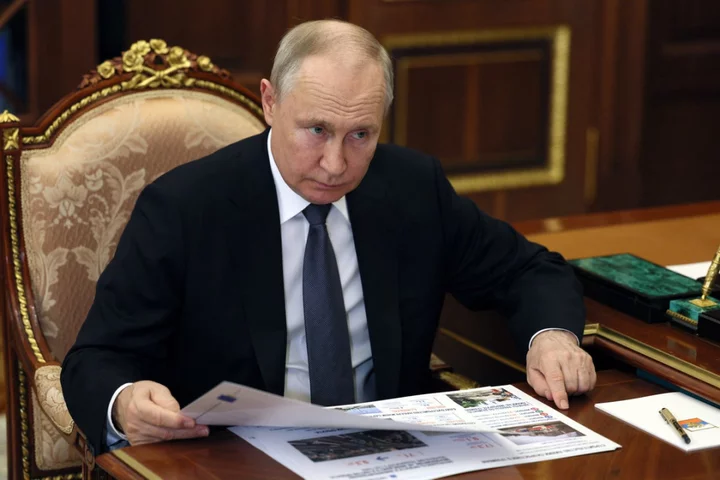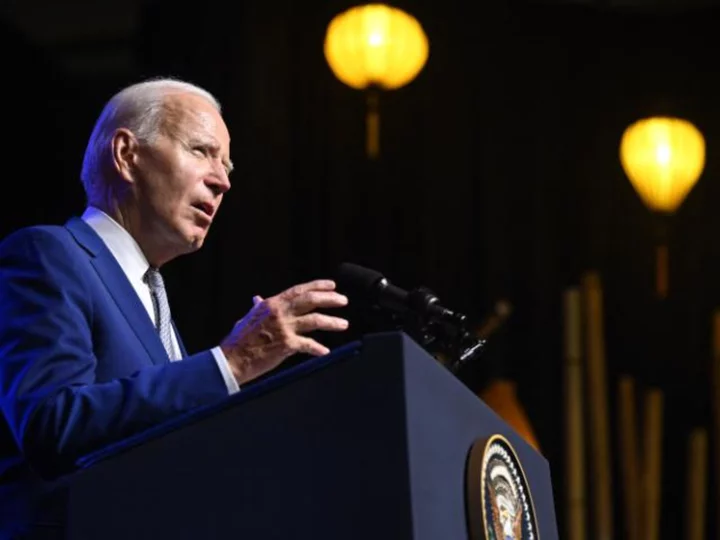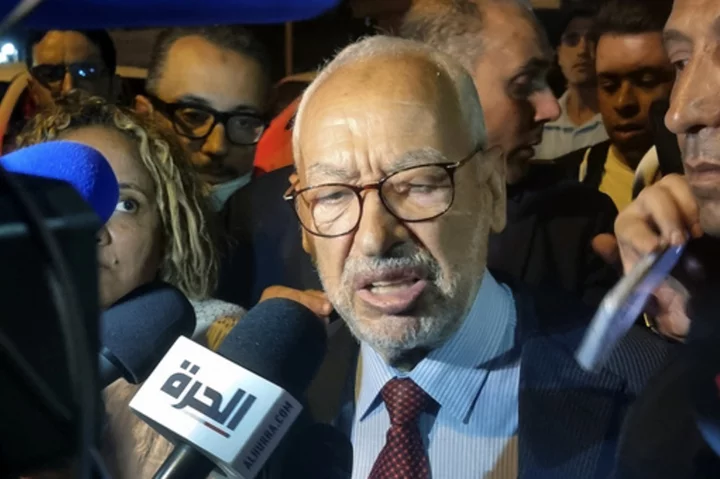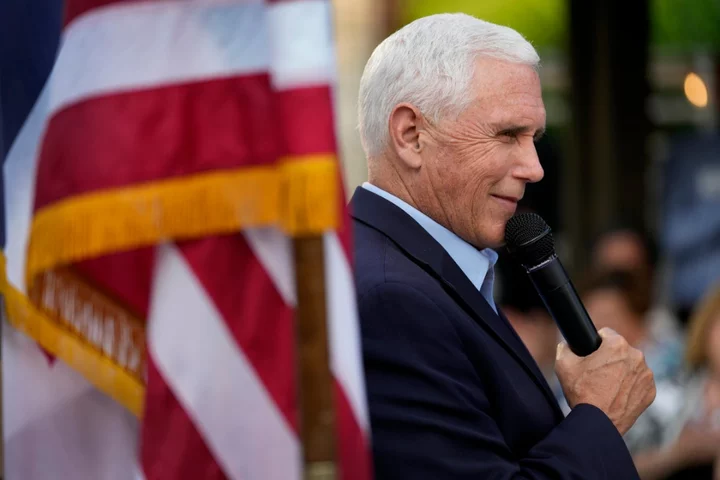Vladimir Putin was reportedly left “paralysed” when the Wagner coup began and no orders were given that day. The mercenary group launched its short-lived mutiny on 24 June, driving its forces towards the Kremlin and preaching open rebellion against Russia’s military leadership – only to abandon its mission just hours later. Now, security officials from Ukraine and other parts of Europe have spoken out, claiming the Russian president was unable to act when he first heard the news. According to intelligence assessments shared with the Washington Post, Mr Putin got a warning from Russian security services that the leader of the Wagner Group Yevgeniy Prigozhin was possibly planning a rebellion, two or three days before it began. But while security was increased at some strategic facilities, such as the Kremlin, including increasing the presidential guard and handing out more weapons, no other action was taken in response to the threat. One European security official, who wished to remain anonymous, told the Washington Post: “Putin had time to take the decision to liquidate [the rebellion] and arrest the organisers. “Then when it began to happen, there was paralysis on all levels … There was absolute dismay and confusion. For a long time, they did not know how to react.” This account of the standoff, which is being viewed as one of the most severe threats to Mr Putin’s presidency in 23 years of his rule, has reportedly been corroborated by officials in Western governments. It’s also consistent with the public comments from William J. Burns, the CIA director, who said that for the majority of the 36 hours when the coup was happening, the military, security services and decision-makers “appeared to be adrift”. According to the analysis, Mr Putin’s indecision shows his fear of countering a warlord like Mr Prigozhin. The Wagner Group leader had played an essential role in the Kremlin’s global ambitions, having previously run troll farms which disseminated disinformation in the US and paramilitary operations in the Middle East and Africa. He then took up the Wagner leader position in the war against Ukraine. But Kremlin spokesperson, Dmitry Peskov, denied the “paralysis” claims, telling the Washington Post, they were made by “people who have zero information”. European security officials added that Mr Putin’s lack of direction meant local officials were then left to decide what to do. Acting without any clear orders, local military decided not to try to stop the Wagner troops, which were heavily armed, as they advanced towards Moscow. Such lack of action led some people to believe the Wagner troops were acting with at least some agreement from the Kremlin. This was despite Mr Putin’s televised address on 24 June saying he promised there would be tough action against the rebels. The way the events unfolded also shows serious cracks and a worsening divide in Russia’s military and security over how the Ukraine war is being handled. Many individuals in the upper sections of the military and security services have reportedly shown support for Mr Prigozhin’s efforts to overturn Russia’s military leadership. Critics of Russia’s president say his lack of direction during the rebellion has left him a lot weaker. Former colonel in the Russian security services and now an opposition politician in exile, Gennady Gudkov, told the Washington Post: “Putin showed himself to be a person who is not able to make serious, important and quick decisions in critical situations. He just hid.” A month after the coup, thousands of Wagner group mercenaries have arrived in Belarus, prompting Nato member Poland to reinforce its eastern border against the “potential threat” they pose. Between 3,450 and 3,650 soldiers have travelled to a camp close to Asipovichy, a town 230 kilometres (140 miles) north of the Ukrainian border, according to Belaruski Hajun, an activist group that tracks troop movements within the country. Read More Why are Wagner mercenaries in Belarus – and would they try to invade Poland? Russia-Ukraine war – live: Putin launches fresh drone strikes on Kyiv as air raid sirens wail across capital Putin signs off law banning Russians from changing gender in latest blow to LGBT+ community The Body in the Woods | An Independent TV Original Documentary The harrowing discovery at centre of The Independent’s new documentary
Vladimir Putin was reportedly left “paralysed” when the Wagner coup began and no orders were given that day.
The mercenary group launched its short-lived mutiny on 24 June, driving its forces towards the Kremlin and preaching open rebellion against Russia’s military leadership – only to abandon its mission just hours later.
Now, security officials from Ukraine and other parts of Europe have spoken out, claiming the Russian president was unable to act when he first heard the news.
According to intelligence assessments shared with the Washington Post, Mr Putin got a warning from Russian security services that the leader of the Wagner Group Yevgeniy Prigozhin was possibly planning a rebellion, two or three days before it began.
But while security was increased at some strategic facilities, such as the Kremlin, including increasing the presidential guard and handing out more weapons, no other action was taken in response to the threat.
One European security official, who wished to remain anonymous, told the Washington Post: “Putin had time to take the decision to liquidate [the rebellion] and arrest the organisers.
“Then when it began to happen, there was paralysis on all levels … There was absolute dismay and confusion. For a long time, they did not know how to react.”
This account of the standoff, which is being viewed as one of the most severe threats to Mr Putin’s presidency in 23 years of his rule, has reportedly been corroborated by officials in Western governments.
It’s also consistent with the public comments from William J. Burns, the CIA director, who said that for the majority of the 36 hours when the coup was happening, the military, security services and decision-makers “appeared to be adrift”.
According to the analysis, Mr Putin’s indecision shows his fear of countering a warlord like Mr Prigozhin.
The Wagner Group leader had played an essential role in the Kremlin’s global ambitions, having previously run troll farms which disseminated disinformation in the US and paramilitary operations in the Middle East and Africa. He then took up the Wagner leader position in the war against Ukraine.
But Kremlin spokesperson, Dmitry Peskov, denied the “paralysis” claims, telling the Washington Post, they were made by “people who have zero information”.
European security officials added that Mr Putin’s lack of direction meant local officials were then left to decide what to do.
Acting without any clear orders, local military decided not to try to stop the Wagner troops, which were heavily armed, as they advanced towards Moscow.
Such lack of action led some people to believe the Wagner troops were acting with at least some agreement from the Kremlin.
This was despite Mr Putin’s televised address on 24 June saying he promised there would be tough action against the rebels.
The way the events unfolded also shows serious cracks and a worsening divide in Russia’s military and security over how the Ukraine war is being handled.
Many individuals in the upper sections of the military and security services have reportedly shown support for Mr Prigozhin’s efforts to overturn Russia’s military leadership.
Critics of Russia’s president say his lack of direction during the rebellion has left him a lot weaker.
Former colonel in the Russian security services and now an opposition politician in exile, Gennady Gudkov, told the Washington Post: “Putin showed himself to be a person who is not able to make serious, important and quick decisions in critical situations. He just hid.”
A month after the coup, thousands of Wagner group mercenaries have arrived in Belarus, prompting Nato member Poland to reinforce its eastern border against the “potential threat” they pose.
Between 3,450 and 3,650 soldiers have travelled to a camp close to Asipovichy, a town 230 kilometres (140 miles) north of the Ukrainian border, according to Belaruski Hajun, an activist group that tracks troop movements within the country.
Read More
Why are Wagner mercenaries in Belarus – and would they try to invade Poland?
Russia-Ukraine war – live: Putin launches fresh drone strikes on Kyiv as air raid sirens wail across capital
Putin signs off law banning Russians from changing gender in latest blow to LGBT+ community
The Body in the Woods | An Independent TV Original Documentary
The harrowing discovery at centre of The Independent’s new documentary









